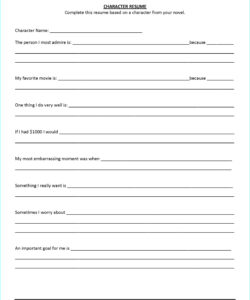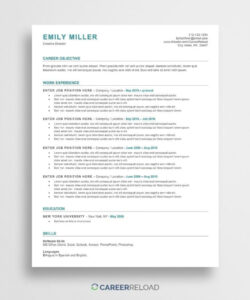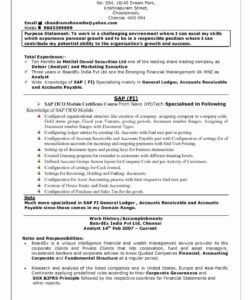When it comes to writing a resume, it’s important to highlight your skills and experience in a way that stands out to potential employers. One skill that is often sought after is being detail-oriented. But how do you convey this on your resume? In this article, we’ll explore some tips and tricks for how to say detail oriented on resume.
First, it’s important to understand what being detail-oriented means. Essentially, it means that you have a keen eye for detail and are able to spot even the smallest errors or inconsistencies. This is an important skill to have in many different industries, from finance to healthcare to technology.
How to Showcase Your Detail-Oriented Skills on Your Resume
Now that you know what being detail-oriented means, it’s time to figure out how to showcase this skill on your resume. Here are a few tips:
1. Use Specific Examples
One of the best ways to demonstrate your attention to detail is by using specific examples from your work experience. For example, you might mention a time when you caught an error that others had missed, or when you were able to identify a pattern that helped your team work more efficiently.
2. Highlight Relevant Skills
Another way to showcase your detail-oriented skills is by highlighting relevant skills on your resume. For example, you might mention that you have experience with data analysis or that you are proficient in a particular software program that requires a high level of attention to detail.
3. Use Keywords
Many employers use applicant tracking systems (ATS) to screen resumes before they ever reach a human recruiter. To make sure your resume gets past these systems, it’s important to use relevant keywords throughout your resume. Some keywords that might be relevant for a detail-oriented position include “accuracy,” “precision,” and “thoroughness.”
How to Write a Resume That Stands Out
Of course, being detail-oriented is just one of many skills that employers look for in a candidate. To write a resume that truly stands out, you’ll need to take a comprehensive approach. Here are a few tips:
1. Tailor Your Resume to the Job
One of the biggest mistakes job seekers make is using the same generic resume for every job they apply for. Instead, take the time to tailor your resume to the specific job you’re applying for. This will help you highlight the skills and experience that are most relevant to that particular position.
2. Use Action Verbs
When describing your work experience, it’s important to use strong action verbs that convey your accomplishments. For example, instead of saying “responsible for managing a team,” you might say “led a team of 10 employees to achieve a 20% increase in productivity.”
3. Keep It Concise
Finally, it’s important to keep your resume concise and easy to read. Stick to one or two pages, and use bullet points to break up long paragraphs of text. This will help ensure that your resume is easy to scan and that your most important skills and experiences stand out.
FAQs
Q: What are some other ways to say “detail-oriented” on a resume?
A: Some other phrases that convey a similar meaning include “meticulous,” “thorough,” “precise,” and “attentive to detail.”
Q: How can I demonstrate my attention to detail during an interview?
A: One way to demonstrate your attention to detail during an interview is by coming prepared with specific examples from your work experience. You might also ask thoughtful questions about the company or position to show that you’ve done your research.
Q: What are some common mistakes to avoid when writing a resume?
A: Some common mistakes to avoid include using generic language, including irrelevant information, and failing to tailor your resume to the specific job you’re applying for.
Q: How can I make my resume stand out?
A: To make your resume stand out, focus on highlighting your most relevant skills and experiences, using strong action verbs, and keeping your resume concise and easy to read.
Q: How can I ensure my resume gets past applicant tracking systems?
A: To ensure your resume gets past applicant tracking systems, use relevant keywords throughout your resume and tailor your resume to the specific job you’re applying for.


